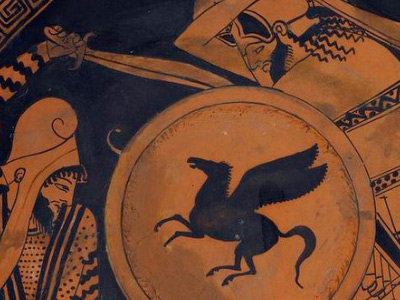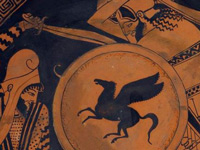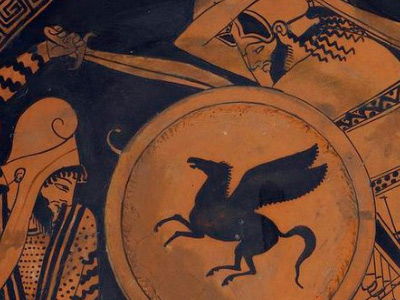Battle of Plataea (479 BC)

Strategic and tactical considerations
In some ways the run-up to Plataea resembled that at the Battle of Marathon; there was a prolonged stalemate in which neither side risked attacking the other. The reasons for this stalemate were primarily tactical, and similar to the situation at Marathon; the Greek hoplites did not want to risk being outflanked by the Persian cavalry and the lightly armed Persian infantry could not hope to assault well-defended positions.
According to Herodotus, both sides wished for a decisive battle that would tip the war in their favor. However, Lazenby believed that Mardonius' actions during the Plataea campaign were not consistent with an aggressive policy. He interprets the Persian operations during the prelude not as attempts to force the Allies into battle but as attempts to force the Allies into retreat (which indeed became the case). Mardonius may have felt he had little to gain in battle and that he could simply wait for the Greek alliance to fall apart (as it had nearly done over the winter). There can be little doubt from Herodotus' account that Mardonius was prepared to accept battle on his own terms, however. Regardless of the exact motives, the initial strategic situation allowed both sides to procrastinate, since food supplies were ample for both armies. Under these conditions, the tactical considerations outweighed the strategic need for action.
When Mardonius' raids disrupted the Allied supply chain, it forced the Allies to rethink their strategy. Rather than now moving to attack, however, they instead looked to retreat and secure their lines of communication. Despite this defensive move by the Greeks, it was in fact the chaos resulting from this retreat that finally ended the stalemate. Mardonius perceived this as a full-on retreat, in effect thinking that the battle was already over, and sought to pursue the Greeks. Since he did not expect the Greeks to fight, the tactical problems were no longer an issue and he tried to take advantage of the altered strategic situation he thought he had produced. Conversely, the Greeks had, inadvertently, lured Mardonius into attacking them on the higher ground and, despite being outnumbered, were thus at a tactical advantage.
HISTORY

RESOURCES
This article uses material from the Wikipedia article "Battle of Plataea (479 BC)", which is released under the Creative Commons Attribution-Share-Alike License 3.0.
© Stories Preschool. All Rights Reserved.









